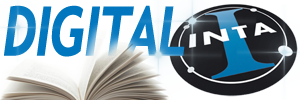Por favor, use este identificador para citar o enlazar este ítem:
http://hdl.handle.net/20.500.12666/949Registro completo de metadatos
| Campo DC | Valor | Idioma |
|---|---|---|
| dc.rights.license | © 2023 by the authors | es |
| dc.contributor.author | García Patrón, Martín | es |
| dc.contributor.author | Rodríguez, Manuel | es |
| dc.contributor.author | Ruiz-Cruz, Jorge A. | es |
| dc.contributor.author | Montero, Isabel | es |
| dc.date.accessioned | 2024-02-27T08:52:34Z | - |
| dc.date.available | 2024-02-27T08:52:34Z | - |
| dc.date.issued | 2023-09-22 | - |
| dc.identifier.citation | IEEE Transactions on Instrumentation and Measurement 72: 1009512(2023) | es |
| dc.identifier.issn | 0018-9456 | - |
| dc.identifier.other | https://ieeexplore.ieee.org/document/10261456 | es |
| dc.identifier.uri | http://hdl.handle.net/20.500.12666/949 | - |
| dc.description | Martin Garcia-Patron [0000-0003-4534-7449] ; Manuel Rodriguez Higuero [0009-0006-0396-0607] ; Jorge A. Ruíz-Cruz [0000-0003-3909-8263] | es |
| dc.description.abstract | Space-borne radio frequency (RF) systems must cope with hard qualification procedures, including the evaluation of high-power handling capability of equipment for space applications. Whatever the electrical parameter is being measured, the general rule of thumb throughout a verification process is to check whether the system can operate up to certain thresholds, which are defined to ensure total reliability for the mission along its operative lifetime. Therefore, assessing and reducing the uncertainty linked to their measurement are mandatory issues as it directly affects the accuracy of the qualification process and hence the safety of the whole space mission. This article presents a novel comprehensive study of all variables affecting measurement uncertainty for high RF power test activities. This study is focused on space applications, and, in particular, multipactor testing, because they comprise the largest number of variables. This is not a restricting case; in fact, the outcome of this work is applicable both for space and ground RF applications. As a conclusion, a complete uncertainty for RF high-power testing is obtained, and, where possible, mitigation actions have also been defined. | es |
| dc.description.sponsorship | The authors would like to acknowledge the support from INTA Department and Area managers Daniel Hernández, Robert Benyon, and Fernando Sánchez. They would also like to thank Karsten Kuhlmann, Friederike Stein, and Frauke Gellerman, from the Physikalisch-Technische Bundesanstalt (PTB), for their detailed revision of this article. EMPIR Programme of EURAMET (Grant number 20IND03 FutureCom) | es |
| dc.language.iso | eng | es |
| dc.publisher | Institute of Electrical and Electronics Engineers | es |
| dc.rights | Attribution-NonCommercial-NoDerivatives 4.0 International | es |
| dc.rights.uri | https://creativecommons.org/licenses/by-nc-nd/4.0/ | es |
| dc.subject | Measurement uncertainty | es |
| dc.subject | Metrology | es |
| dc.subject | Multipactor | es |
| dc.subject | Radio frequency (RF) high power testing | es |
| dc.subject | Space technology | es |
| dc.subject | Test security margin | es |
| dc.subject | Uncertainty bidget | es |
| dc.title | Uncertainty budget in microwave high-power testing | es |
| dc.type | info:eu-repo/semantics/article | es |
| dc.identifier.doi | 10.1109/TIM.2023.3317909 | - |
| dc.identifier.e-issn | 1557-9662 | - |
| dc.contributor.funder | Instituto Nacional de Técnica Aeroespacial (INTA) | es |
| dc.description.peerreviewed | Peerreview | es |
| dc.type.hasVersion | info:eu-repo/semantics/publishedVersion | es |
| dc.rights.accessRights | info:eu-repo/semantics/openAccess | es |
| dc.type.coar | http://purl.org/coar/resource_type/c_6501 | es |
| Aparece en las colecciones: | (Espacio) Artículos | |
Ficheros en este ítem:
| Fichero | Descripción | Tamaño | Formato | |
|---|---|---|---|---|
| Uncertainty budget in microwave high-power testing.pdf | 6,4 MB | Adobe PDF |  Visualizar/Abrir |
Este ítem está sujeto a una licencia Creative Commons Licencia Creative Commons



